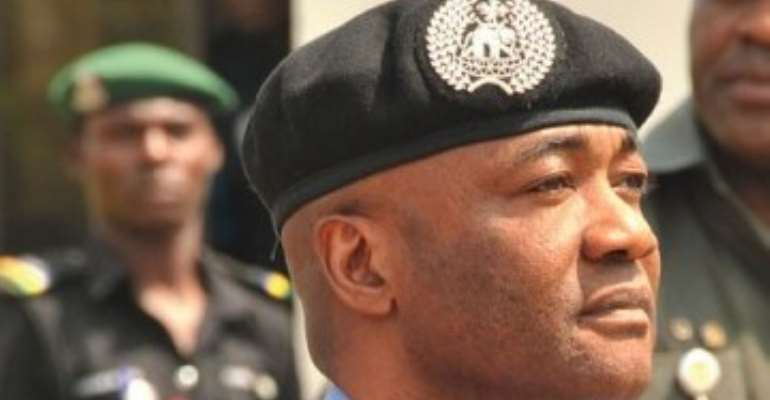Customs, police gun duel – Punch

Official misconduct and other forms of illegality have become the hallmark of security agencies in Nigeria. There are many instances of these, but the authorities should be decisive about this month's episode in Seme, Lagos, where Nigeria Customs Service and Nigeria Police Force officers engaged themselves in a deadly gun duel.
Although no life was lost, the fact that security agents could brazenly attack their colleagues in a sister security agency with their service weapons shows the widespread abuse of power among them. Nowhere else in the world do security agents show such flagrant disrespect for the laws of a country but in Nigeria.
In the incident, police and Customs officers reportedly engaged in a gun battle for over an hour after Customs men arrested a police inspector near the Nigerian border with Benin Republic for alleged rice smuggling. Instead of following the due process to ascertain the officer's innocence or otherwise, policemen from the Oto Awori Division allegedly stormed Agbara and attempted to forcibly release the suspect. This led to the violence.
Since the February 4 incident, the Police and Customs high commands have been treating the issue with their usual levity. Such disregard for decency and the lack of political will to nip the infraction in the bud are a principal factor in our security agents' continued acts of impunity, even against the citizenry.
The Seme case is not an isolated event. In that same week, Nigerian Army and police personnel also clashed in Aba, Abia State, after a minor traffic incident between a police officer and an Army captain, who felt slighted that the policeman did not remove his car on his order. The Army officer later invaded the police area command with about 50 soldiers.
In April 2013, unruly soldiers from the 2 Division, Nigerian Army, had also attacked the Mokola Police Division, Ibadan, Oyo State, in their bid to avenge an alleged shooting of a colleague, vandalising property, beating up officers and stabbing them. The police retaliated. It is tragic that our security agencies continue to bring the organisations and the country they represent into disrepute with their unwholesome conduct.
At this trying time when security men should concentrate on ending criminality, particularly armed robbery, smuggling, kidnapping and terrorism that are ravaging the country, they are dissipating energy attacking themselves. But having finished battling each other, the insufferable security agents regularly turn their guns and fury on defenceless citizens, maiming and killing at will, like when an Army private, Benjamin Ezinne, beat a Lagos bus driver, Bashiru Adebayo, to death over his (the soldier's) refusal to pay his bus fare last month.
An underlying factor in the absurdity is the long period of military dictatorship when juntas unduly relegated the police to the background. The military deliberately denied the police adequate funding and usurped their statutory duties, which are to enforce the law, protect property and suppress crime. Although Nigeria returned to civil rule in 1999, little has changed. Military personnel still refuse to subordinate themselves to the authority of the police (law).
Ending this illegality demands a strong resolve by the service chiefs to make their officers answerable to civil authority. The military bosses must make their officers and men aware that they are there to protect the country from external aggression, not to be maiming or brutalising innocent citizens. Every military personnel that attacks the police must be openly sanctioned by the authorities. This will compel military men to understand that they are not above the law. Another measure is to make those who head security formations answerable for the misdemeanour of officers under their command.
The police have been complicit, too. They continue to kill over bribes of as low as N20. Security agencies are paid to protect the people but in doing this, they often overstep their bounds. But well-organised countries have found an antidote to the excesses of law enforcement officers. A police officer in Turkey, Fatih Zengin, is to be prosecuted and faces a possible three-year jail term for using excessive force on a woman, Ceyda Sungur, who was sprayed with tear gas during the protests there last year.
In the United States, some police officers were tried - though later controversially acquitted - for beating up Rodney King, a Black American who was on parole for robbery in 1991 in Los Angeles. In the United Kingdom, a body, the Independent Police Complaints Commission, handles matters of discipline involving the police.
The Inspector-General of Police, Mohammed Abubakar, and the Customs Comptroller-General, Abdullahi Dikko, have to step into this issue. The officers involved in the Seme border mayhem should be fished out and prosecuted to deter others. It is a patently corrupt act for security agents to aid their colleagues to smuggle goods into the country.
A security organisation lacking in discipline is not worth its authority. The Police Service Commission and the IG, which are entrusted with the discipline of policemen, should do their job efficiently.
